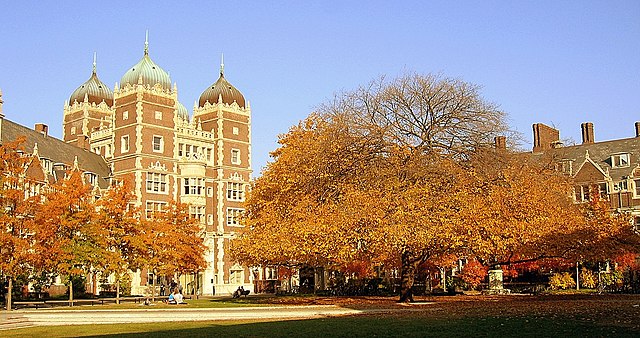
It was the scandal we never expected: The presidents of three of the most prestigious universities testified before the House Committee on Education & the Workforce last week—and ignited outrage in the country. They argued, almost in unison, from the same script, that the eruption of demonstrations on their campuses in support of the Hamas attack on Israel still counted as the “free speech” protected on their campuses. The demonstrations offered a manifesto in defense of killing innocent Jewish civilians and their babies, as somehow “justified” by wrongs done to the Palestinian people. But the presidents averred that the matter had to be “contextualized”: it was one thing to proclaim the rightness of killing Jews solely because they were Jews and living in the wrong place; but that was different from actually crossing the line to make lethal assaults on the campus.
That was the line taken by Elizabeth Magill, the President of the University of Pennsylvania, and that triggered the incredulity of Rep. Elise Stefanik (R-N.Y.). The call for Intifada, she said, was the call for “for the genocide of Jews,” and did that “constitute bullying or harassment”? Magill responded that “if it is directed and severe, pervasive…it can be harassment.” She later continued, “It is a context-dependent decision, congresswoman.” That line was repeated by Claudine Gay, the President of Harvard, and Sally Kornbluth, the President of MIT; and yet that was the line that brought the ceiling crashing down. Magill was denounced by the Governor of Pennsylvania, and an alumnus from the Wharton School of Business at Penn threatened to withdraw a grant of $100 million “absent a change in leadership and values at Penn.” By the weekend Magill submitted her resignation.
And yet, Magill was simply moving along the lines that most lawyers would, tutored on the holdings even of conservative justices on the Supreme Court. Presidents Magill and Gay were counseled by the same leading law firm, WilmerHale, and even Will Creeley, the legal director at FIRE, the Foundation for Individual Rights and Expression—the premier organization defending free speech on the campuses–said that the three presidents were “legally correct.” “It does depend on context,” Creeley said.
The broad public, listening in, just thought that the answers of the Presidents were morally empty
But Elizabeth Magill could not hide behind that constitutional point. The broad public, listening in, just thought that the answers of the President were morally empty. And yet no one connected dots: if Magill’s line was morally empty, so were those public teachings from which it had been drawn, furnished by our leading jural minds (with the one lingering hesitation of Justice Samuel Alito). This should have been a moment of jolting clarity: Elizabeth Magill has been an accomplished professor of law and for seven years Dean of the law school at Stanford. She was doing nothing more than conveying the main lines of the doctrine that has been settled upon by the leading jural minds, liberal and conservative, as they’ve sought to instruct us on the most defensible account we can give of the rights and wrongs of restricting speech under the First Amendment. And of course, the First Amendment doesn’t even apply to the University of Pennsylvania, Harvard, or MIT. The First Amendment involves restrictions on speech and publication enforced by law. It doesn’t apply to the regulations put out in a private university, no matter how restrictive or free they may be.
The ordinary person, untutored in philosophy, will not speak of things only “contingently” right or wrong, depending on the circumstances, as opposed to things “categorically wrong,” under all circumstances. But he knows that it will not always be harmful or wrong to take an alcoholic drink. That will be a matter dependent on circumstances, on degree and moderation. But the same man will not turn around and say that “genocide, taken in moderation, with small doses”—sending, say, only a handful of Jews to the death camps—may be harmless or inoffensive.”
That mode of thinking has rarely been found among lawyers these days. It might have been clearer if the university had been facing demonstrations in favor of lynching, and President Magill said that we were waiting to see if any black person were actually attacked. But the question would have been posed even more clearly: would a president really be bereft of any sources for judging such demonstrations? Could stirring a passion for the killing of innocent people solely on the basis of race be compatible with the principles on which a university is constituted in this country, even if no one has been attacked?
But of course, these colleges and universities have suffered no inhibitions in barring speakers bearing arguments against transgenderism, racial preferences, and the taking of innocent lives in abortion. The difference is that this was the first time these presidents have been challenged to offer a principled defense of their policies, protecting their own reigning orthodoxies. And it took place now only because, in this democracy, the Republicans happened to hold one house of Congress.


